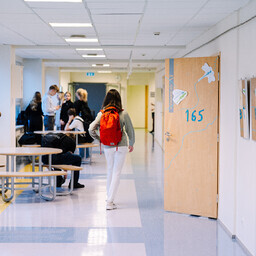Schools must decide for themselves how to regulate mobile phone use. The Ministry of Education trusts schools and gives them the freedom to create their own rules.
Merili Murakas, an expert at the Ministry of Education, says that schools have a duty to regulate the use of smart devices. According to her, each school has different concerns and needs.
The school's code of conduct must specify how to use smart devices. The goal is to help students focus on learning and maintain their mental health.
Murakas emphasizes that smart devices are an important part of children's lives. Therefore, we cannot rely solely on the experiences of previous generations. Schools can seek advice from the ministry and the Institute of Health Development.
Liina Altroff, director of Tallinn Arte Gymnasium, says that in their school, the use of mobile phones is prohibited in elementary grades. In the gymnasium, phones are banned during class unless the teacher says otherwise.
Altroff does not support confiscating phones at school. According to her, a phone is a student's personal property and their responsibility. The school has no right to manage it in any way.
Anu Nigesen, director of Tallinn Old Town Educational Gymnasium (VHK), believes that uniform rules for all schools would be simpler. According to her, the use of smart devices is a complex issue. The school tries to find ways to use them wisely.
At VHK, elementary school students must put their phones in a locker for the duration of the school day. Gymnasium students, however, are adults and understand that phones can interfere with learning.
Several NGOs in Estonia have called for unified rules on mobile phone use. For example, the NGO Community Welfare wants mobile phones to be banned in schools.

